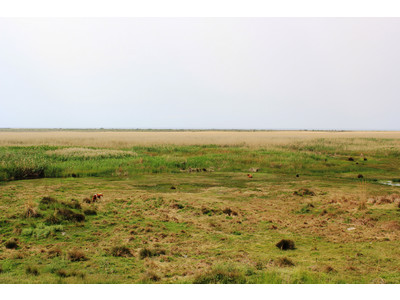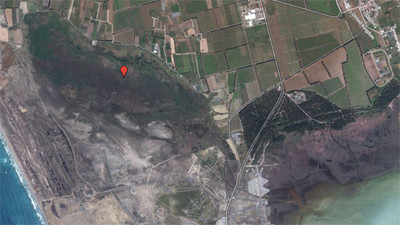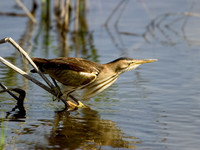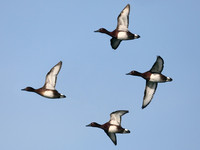Akrotiri Marsh
Akrotiri marsh (also known as Fassouri marsh/reedbed) is part of the unique Akrotiri wetland complex at the Akrotiri Peninsula in Limassol district. The site lies within the Cyprus Sovereign Base Area and is also a state land.
The site is a Ramsar site, an Important Bird Area (IBA) and a Special Protection Area (SPA), equivalent to the EU designation, according to the mirror law (26/2007) in the Cyprus Sovereign Base Areas (SBAs). The site is also a candidate Special Area of Conservation (SAC) for habitats and species of wild flora and fauna.
Twenty-seven natural habitats (22 terrestrial and 5 marine) have been recorded in the area of Akrotiri Peninsula under the Natura 2000 network study. These habitats, four of which are priority, comprise a variety of characteristics and host a big diversity of life forms.
The wetland ecosystem of Akrotiri marsh depends on the Akrotiri aquifer. However, the site has degraded since the construction of the Kourris Dam, which has severely reduced downstream flow towards the Akrotiri peninsula.
The Important Bird Area (IBA) which includes the Akrotiri marsh, Akrotiri Peninsula and the Episkopi Cliffs is among the most outstanding IBAs of Cyprus. This extensive site is a congregation site for waterbirds in winter and spring, including globally important numbers of Flamingos, and a raptor bottleneck site in autumn, with globally important congregations of four birds of prey including the Red-footed Falcon. Other notable migrants occurring in numbers of regional importance include Little Egret, Glossy Ibis, Crane, Demoiselle Crane and Collared Practincole.
Important breeding birds at Akrotiri marsh are Ferruginous Duck, Spur-Winged Lapwing, Black-Winged Stilt, Black Francolin and probable Little Bittern. Also of note are the Reed Warbler and Black-headed Yellow Wagtail which breed only at a few sites in Cyprus. The site is amongst the best breeding sites in Cyprus for the Ferruginous Duck.
Besides its importance for birds, Akrotiri marsh is also important for its flora as the site hosts some rare and threatened species that are included in the The Red Data Book of the Flora of Cyprus. For some plants such as Ipomoea sagittata, Mentha aquatica, Euphorbia pubescens, Orchis palustris and Baldelia ranunculoides, the Akrotiri marsh is the only known site in Cyprus where these plants exist. The Akrotiri peninsula is also one of the botanical hotspots in Cyprus as it has been estimated that more than 800 indigenous plant taxa occur here.
The marsh, which covers an area of around 150 hectares, has been unmanaged for the last 20 years resulting in the overexpansion of reeds and the consequent loss of bird and plant diversity. A Darwin Plus project started in April 2015 in order to restore the biodiversity at Akrotiri marsh through the implementation of on-site conservation actions as well as awareness raising actions and creation of visitor facilities.
The two-year project is funded by the Darwin Initiative through UK Government funding (Darwin Plus, the Overseas Territories Environment and Climate Fund) and is implemented with BirdLife Cyprus as a lead partner and in collaboration with the Akrotiri Environmental Education Centre and the RSPB (BirdLife partner in the UK).






